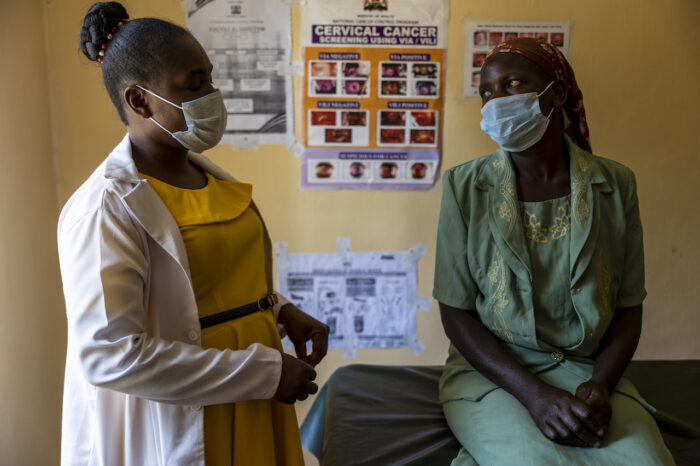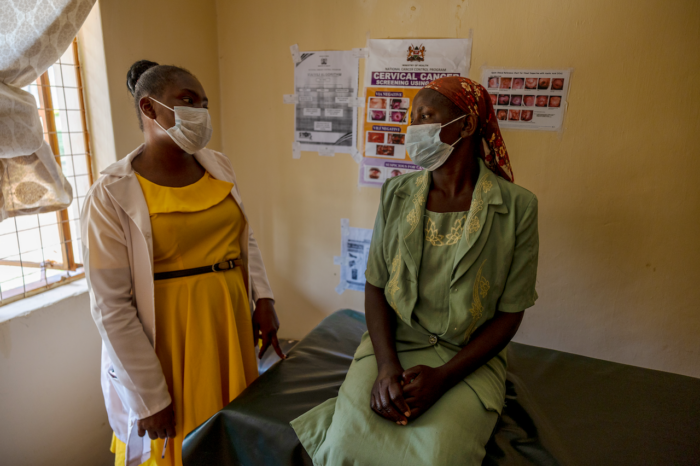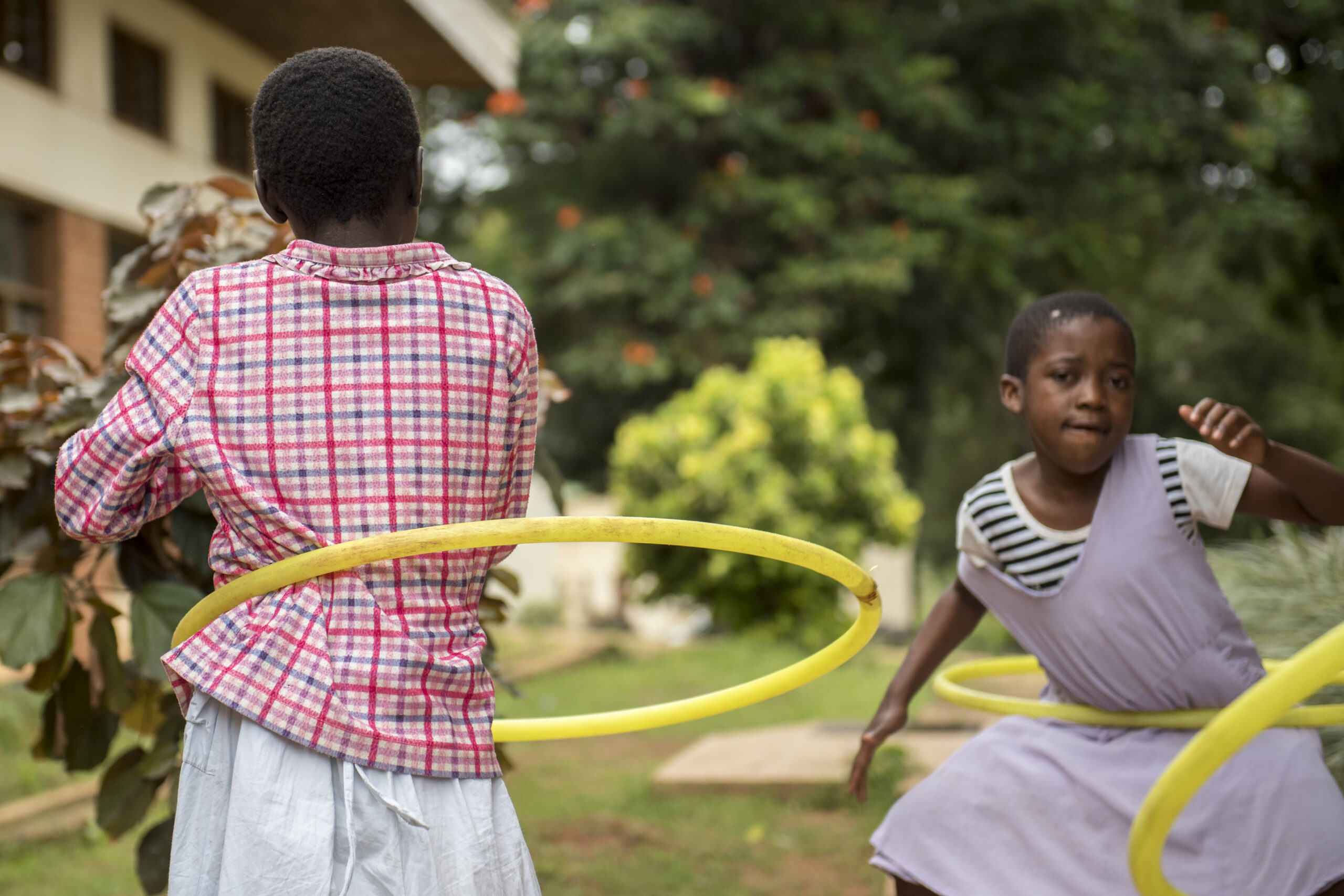“In the fight against cervical cancer in Kenya, one of the issues we have observed is the failure to take action,” declared Susan Nakhumicha, Kenya’s Cabinet Secretary of Health at the nation’s first National Cancer Summit in early February.
LVCT Health and the Elizabeth Glaser Pediatric AIDS Foundation (EGPAF) have heard the call to action and have joined forces to reduce, or end, cervical cancer deaths in western Kenya.
Their partnership with the Ministry of Health, through the Vukisha 95 HIV project, demonstrates that integrating cervical cancer screening into HIV services greatly improves cancer diagnosis and treatment. This is critical as women with the human immunodeficiency virus (HIV) are six times more likely to develop cervical cancer than women without HIV. But the project goes beyond reaching women living with HIV—It extends integrated services to all women through comprehensive care and maternal and child health clinics.
Consistent Service Means Consistent Health

Cervical cancer screening has now been integrated in 164 sites across Homabay and Kisii Counties through Vukisha 95—raising the total to 274 total sites. The project has also been training healthcare workers in an effort to increase the quality of service. This means that women can expect consistent service when they access those facilities.
“I came to the facility for HIV testing services, and the nurse talked to me about cervical cancer and informed me that the testing services were available and free,” says Benta Auma, a mother and Homabay County resident. “The staff were friendly and explained everything to me. I took the test and also got family planning services.”
“Empowering the counties has led to an increased number of women screened across all levels of health care and prompt treatment … and follow-up with patients,” says Maureen Mbogo, a LVCT technical officer. She notes that having commodities on hand has helped increase the number of screenings, especially at comprehensive care clinics. This translates into earlier prognosis and fewer cancer deaths.
“Through the partnership, we have integrated cervical cancer screening in comprehensive care and maternal and child health clinics, trained more health care workers, and procured nitrous gas for cryotherapy machines,” adds James Otiato, Kisii County Reproductive Health coordinator.
Cervical Cancer Screening Boosts Other Health Outcomes

“At the start of the project, only 28 health care workers had been trained in cancer screening and management,” says Irene Alaska Wattoyi, LVCT senior technical officer. The number has since increased to 123 health care workers. So far, we have screened over 26,000 women for cervical cancer, attributing to the huge success of integrating cervical cancer within the HIV program.”In fact, Vukisha 95 surpassed screening targets by 20% in 2020/2021, says Wattoyi.
Dr. Jacob Bulimo Khaoya, LVCT public health specialist, points to the success of the project beyond the numbers: “There is also a lot of cross-cutting of health services made available when a woman of reproductive age accesses screening for cancer of the cervix; such services include immunization for accompanying children, access to family planning options, and STI [sexually transmitted infection] treatment.
“Cervical cancer screening by itself boosts a client’s adherence to HIV care by ensuring steady clinic appointments and reducing losing clients to follow-up. In addition, integrating cervical cancer screening and treatment maximizes health outcomes by averting new cases and deaths thanks to greater care and annual re-screening.”
“We have been integrating COVID-19 services and are using the valuable lessons learned to integrate screening and management of non-communicable disease screening and management to ensure timely and effective responses,” says says Dr. Eliud Mwangi, EGPAF-Kenya’s country director. “We will continue to scale up service integration in our contribution to the realization of universal health coverage.”
“We have been integrating COVID-19 services and are using the valuable lessons learned to integrate screening and management of non-communicable disease screening and management to ensure timely and effective responses.” Dr. Eliud Mwangi, EGPAF-Kenya's country director
Call to Action
The National Cancer Summit in February concluded with a commitment to a joint action plan and an accountability framework for cancer prevention and control in Kenya.
Some of the proposed actions include 1) enhancing access to basic cancer screening and diagnostic services in primary health care settings; 2) strengthening investments in cancer diagnostic services across all levels of care; 3) engaging multiple stakeholders to strengthen the capacity of health facilities to provide the required cancer services in a sustainable way; and 4) make sure that palliative care is available.
“At EGPAF-Kenya we are intentional about implementing patient-centered care, looking at the patient’s needs holistically through an integrated model,” says Dr. Mwangi.




